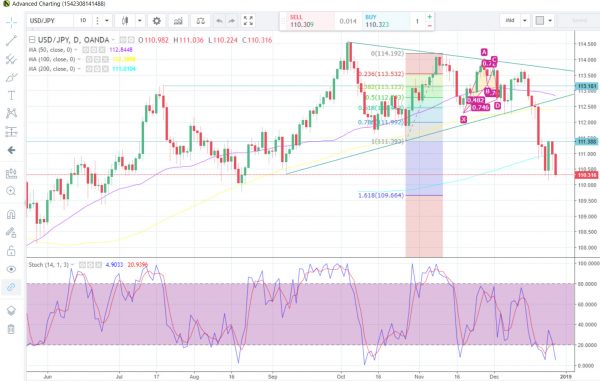Global equities for the most part are rallying and so are safe-haven currencies. While the European bourses are up between 1.4% and 2.5%, the Nikkei fell 0.3% to 20,0014, its first annual loss since 2012.
Negative data in Japan dampened the mood for the Nikkei. The industrial production readings for November came in better than expected but lower than the prior readings. The month on month reading declined 1.1%, down from 2.9% and better than the -1.5% analysts’ consensus. The annual reading was 1.4%, better than the 0.6% eyed, but lower than the 4.2% prior reading. The retails sales data disappointed across the board and saw the prior months revised lower.
The 10-year yield for Japanese government bonds fell to 2 basis points to -0.012%, the first time since Sept 2017. The last time this key yield fell into negative territory, Japanese stock weakness persisted. The demand for safe-haven assets has been strong going into year-end and the drop in Japanese yields should come to no surprise. Recent Japanese government data show that foreign investors are buying record amounts of Japanese bonds. If the recent low in stocks hold, we could see this negative slide for Japan yields be temporary.
USD/JPY continues to give back its Christmas gains and is once again approaching the psychological 110 handle. If global sentiment becomes negative again, we will see the yen appreciate again alongside US Treasury bonds will rise as yields continue to slide. The data is softening and the US/China trade war continues to weigh on Japan. For now, 110 may provide a bounce, but if a sustained rally does develop, we could see 108.50 targeted.

